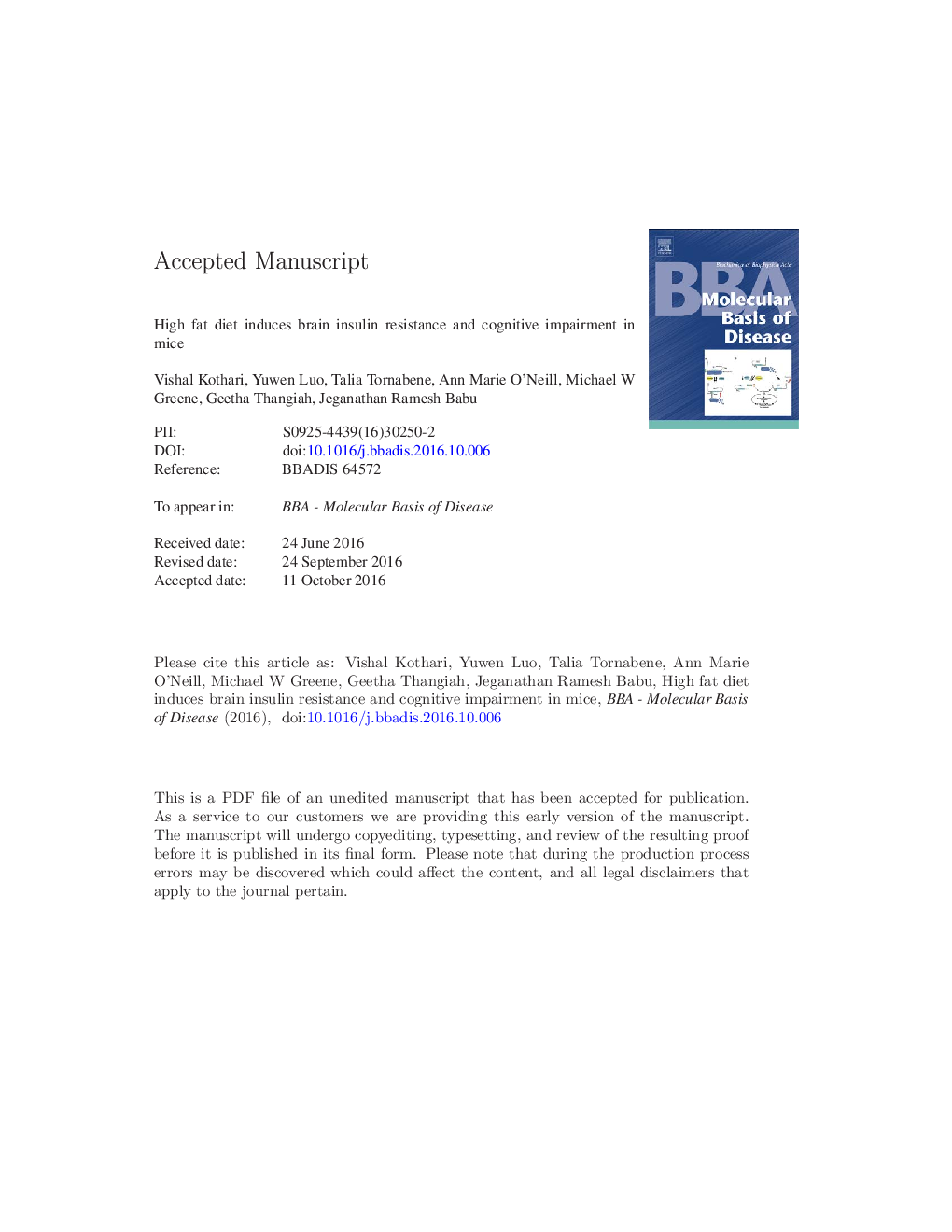| Article ID | Journal | Published Year | Pages | File Type |
|---|---|---|---|---|
| 5501118 | Biochimica et Biophysica Acta (BBA) - Molecular Basis of Disease | 2017 | 37 Pages |
Abstract
High fat diet-induced obesity is associated with insulin resistance (IR) and other chronic, diet related illnesses, including dementia. Alzheimer disease is the most common form of dementia, and is characterized by the presence of amyloid plaques and neurofibrillary tangles in brain. This study was designed to determine whether diet-induced changes in peripheral insulin sensitivity could contribute to alterations in brain insulin signaling and cognitive functions. Six week old, male C57BL/6NHsd mice were randomly assigned a high fat diet (40% energy from fat) with 42 g/L liquid sugar (HFS) added to the drinking water or a normal chow diet (12% energy from fat) for 14 weeks. Metabolic phenotypes were characterized for energy expenditure, physical activity, and food intake, and glucose and insulin tolerance tests. In addition, we examined the changes in protein expression related to brain insulin signaling and cognitive function. Mice fed HFS exhibited a statistically significant increase in obesity, and lower glucose and insulin tolerance as compared to animals fed the normal chow diet. In brain, HFS elicited IR as evidenced by a significant decrease in tyrosine phosphorylation of insulin receptor and an increase serine phosphorylation of IRS-1. These changes were accompanied by inflammatory (NFκB, JNK) and stress responses (p38 MAPK, CHOP) in whole brain lysate. In addition, HFS mouse brain exhibited biochemical changes related to increased amyloid beta deposition and neurofibrillary tangle formation, and decreased synaptic plasticity. These results suggested changes in insulin sensitivity might contribute to cognitive impairment associated with the HFS diet in mice.
Keywords
T2DMHFSAPPCREBHFDGTTPSDGFAPinsulin tolerance testinsulin degrading enzymeHomeostatic model assessmentITTIDEAlzheimer diseasepostsynaptic densityglucose tolerance teststandard error of the meanType 2 diabetesHigh fat dietWestern dietSEMObesityInsulin resistanceHOMAGlial fibrillary acidic proteinamyloid precursor protein
Related Topics
Life Sciences
Biochemistry, Genetics and Molecular Biology
Ageing
Authors
Vishal Kothari, Yuwen Luo, Talia Tornabene, Ann Marie O'Neill, Michael W Greene, Thangiah Geetha, Jeganathan Ramesh Babu,
